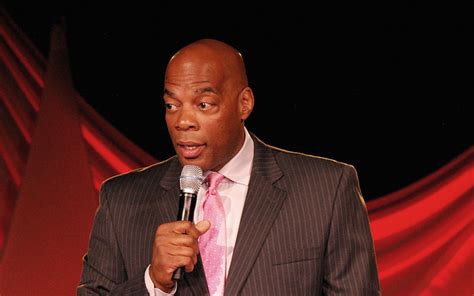A Quote by W. Edwards Deming
Managers don't like giving appraisals, and employees don't like getting them. Perhaps they're not liked because both parties suspect what the evidence has proved for decades: Traditional performance appraisals don't work.
Related Quotes
Possibly the biggest issue, however, is that performance appraisals focus managers attention on precisely the wrong thing: individual people. As W. Edwards Deming, the father of the quality movement, taught a long time ago, company performance often results more from variations in systems than from the individuals doing the work.
Comparative appraisals of efficacy require not only evaluation of one;s own performances but also knowledge of how others do, cognizance of nonability determinants of their performances, and some understanding that it is others, like oneself, who provide the most informative social criterion for comparison
The debate can be put in the form of the question: Resolved, that the best of money managers cannot be demonstrated to be able to deliver the goods of superior portfolio-selection performance. Any jury that reviews the evidence, and there is a great deal of relevant evidence, must at least come out with the Scottish verdict: Superior investment performance is unproved.
For many activities, people cannot rely solely on themselves in evaluating their ability level because such judgments require inferences from probabilistic indicants of talent about which they may have limited knowledge. Self-appraisals are, therefore, partly based on the opinions of others who presumably possess evaluative competence
I have a few different managers, and one of them hit me up today and was like 'I'm going to set you up with these guys doing beats and such...' I was like cool, as long as I can do what I do. Just because kids are going like this now, I'm not going to do that because I am not 18 years old. I'm not going to rap like I'm in grade three because it's popular. I'm just not going to do that. It's not because I'm being stubborn, and I definitely not that guy that is getting older and does not understand the younger generation.
The difference, generally speaking, between sportbike people and cruiser people is that sportbike people like performance skill and wear safety gear; cruisers like chrome, noise, and style. It's funny to me to separate them because I ride both. I prefer performance cruisers like the Honda Valkyrie I had or my Triumph Rocket III.
The attentions of others matter to us because we are afflicted by a congenital uncertainty as to our own value, as a result of which affliction we tend to allow others' appraisals to play a determining role in how we see ourselves. Our sense of identity is held captive by the judgements of those we live among.
Modern Australian trade unionism and the unionist that I am doesn't rely on a class war view that somehow that the interests of employees and managers are in two separate spheres and they're irreconcilable. I believe that when people can go to work and be happy, satisfied, engaged, where the employer is getting employees who feel their interests are aligned with the employer, you get productivity. This is the future of Australian workplaces.

































